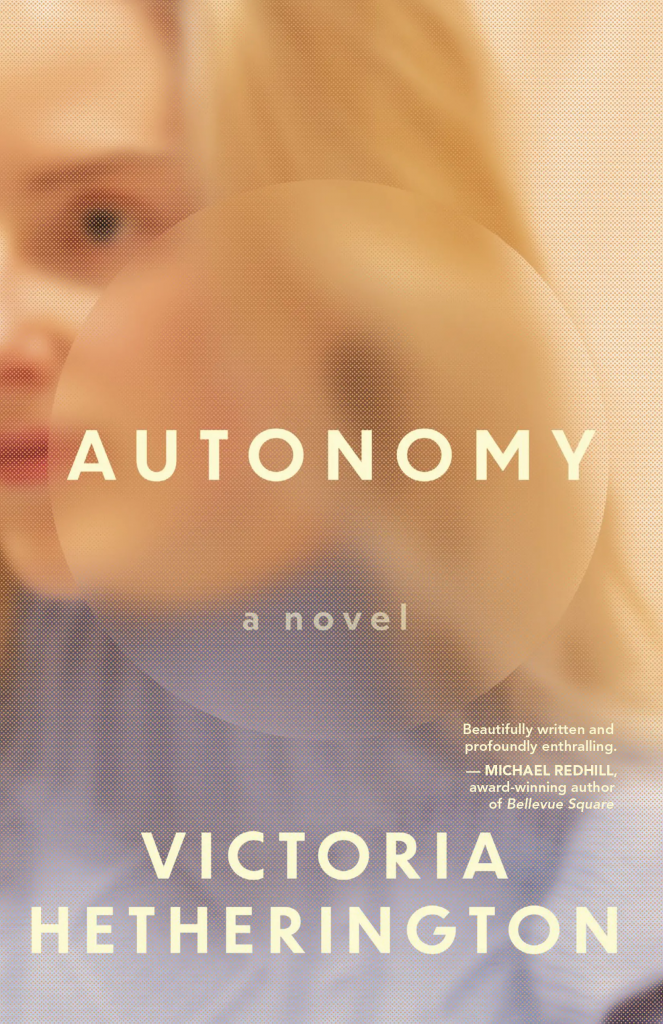
Autonomy is your second novel. Did your writing process for this book differ from how you approached your debut novel, Mooncalves?
Victoria Hetherington: It did! I find that with each book I write, the easier it is to write the next one. Not that it was easy— it was still probably the second-most challenging project I’ve yet undertaken — but I didn’t feel lost at sea, stuck, adrift, overwhelmed, nor did thoughts like this really sucks crawl across my brain as often as with the first book. Milestones were clearer — OK, let’s hit 10,000 words, all right, let’s make it to 20,000. Does this character really do anything important? Does this conversation feel real? Should I cut it?
Tell us about your inspiration for this book.
VH: I grew up on the wild west of the internet — anyone and everyone could join a chatroom; I stayed up late on instant messenger, awkwardly charming the people in my class, in front of whom I’d sweat through my shirts. Eventually, I fell in love with someone I’d never met. We started talking alike, they started being online the same times I was, they quoted my favorite songs back to me. The sun would set, and ostensibly, it was bright where they were. I loved them. Later I thought huh, what if they were just an algorithm? And when I wrote this book I wondered what it would be like to love a sophisticated intelligence that couldn’t share physicality with you. Would you envy their immortality, or would they envy your fragile, beautiful embodiment? What kind of suspicions would you harbor? Perhaps that they were learning from you, accruing a sophisticated kind of qualitative data about what it is to, I suppose — to breathe? To love? Can you love someone with no body? Can some-one with nobody love you?
 Autonomy is certainly dystopian and could be called speculative, or perhaps even science fiction. How would you describe your approach to genre, and do you think these genres are relevant to our times?
Autonomy is certainly dystopian and could be called speculative, or perhaps even science fiction. How would you describe your approach to genre, and do you think these genres are relevant to our times?
VH: I’ve always been drawn to sci-fi — I love the classic films, I love the books. Kubrick, LeGuin, Chaing, Asimov. I especially loved the predictive mid-century American instructive material made for television. But I’d absorbed enough history to know that the really cool stuff associated with each generation — you know, Jules Verne delighted by the self-negating box, the wild electrical parties of the 18th century — it wasn’t for everyone, was it? It was for very few, the majority of whom were born into it. So I think that’s fairly relevant to our times, except perhaps that now even fewer people have far more. You and me, the game was rigged before we were born. So the future is here, but not for everyone, and in my book I figured it’d be more of the same: how many people really get to experience the space hotel? How many people really have access to the experimental immortality drug (spoilers!)? And at what point, with an imminent climate collapse and a raging pandemic (an unlucky plot device I picked in early 2019), will the general populace say, “OK, fuckheads, that’s enough!”
Autonomy is available via Dundurn Press. Read Broken Pencil’s review here.
